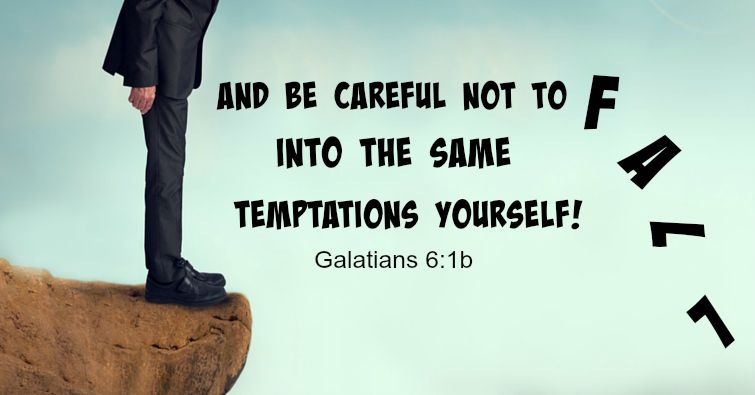3 Steps to a Peaceful Heart
 Being one of those people with a “sensitive nature,” (read that as touchy and taking myself too seriously), I spent many years of my life in inner turmoil of some kind. If I received what I thought was a wrong look, harsh comment, or short response, I stewed on it forever, analyzing and reanalyzing what I did wrong, why that person didn’t like me, how could they be so mean … you get the picture. I could worry myself into a frenzy.
Being one of those people with a “sensitive nature,” (read that as touchy and taking myself too seriously), I spent many years of my life in inner turmoil of some kind. If I received what I thought was a wrong look, harsh comment, or short response, I stewed on it forever, analyzing and reanalyzing what I did wrong, why that person didn’t like me, how could they be so mean … you get the picture. I could worry myself into a frenzy.
Worries Everywhere
I’d also worry about any perceived threats: storms, accidents, bad grades, and so on. My mom was always telling me to quit being a worry wart! Maybe you can identify with that struggle. Goodness knows, there’s plenty of things to be anxious about in the world today.
Over time, however, I realized that worry is actually a bad habit, a sin, that God tells us not to do.
As I’ve grown in my faith, I’ve thankfully gotten over myself, although I will always have to keep a check on this area.
Now don’t mistake peace for sweeping things under the carpet. If an issue needs to be addressed, address it. What I’m talking about is the daily drip of worry and anxiety that drains the life out of you and robs you of peace and joy. If your first waking thought is a rehash of all your current worries and problems as you readjust the load into your mental backpack for the day’s hike, then it’s time to break this cycle.
3 Steps To Ditch Worry and Get Peace
We’re going to take our steps from Philippians 4:6-7 NIV:
6 Do not be anxious about anything, but in every situation, by prayer and petition, with thanksgiving, present your requests to God. 7 And the peace of God, which transcends all understanding, will guard your hearts and your minds in Christ Jesus.
Step 1, Pray
This step is pretty straightforward. God tells us to pray. The thing to note here are the words every situation. Nothing is too small or too big for God to handle. Skinned knees, injured animals, and hurt feelings should all be taken to God. So should accidents, job loss, sickness, and death. Everything falls  under His jurisdiction.
under His jurisdiction.
Step 2, Petition
At first, I didn’t see much difference between this and prayer. But when I looked at the Greek meanings, the subtleties became clear. in the Greek, one definition of petition is “prayer for particular benefits.” God wants us to be very specific in our prayers. Dig in. Rather than praying general prayers of “Help John feel better,” we can pray targeted prayers. “Help John acknowledge this addiction and seek healing for it.”
We can pray a verse of scripture for added power “Lord, we thank you that you sent your word to heal John and deliver him from his destruction,” (Psalm 107:20). If you have a particularly difficult situation and just don’t now how to pray, a prayer strategy may be helpful.
Step 3, Thanksgiving
The third step to peace is that we are to have a heart of thanksgiving. In the Greek, the word is eucharistia, and it means “actively grateful language (to God as an act of worship).” So as we are praying, we salt and pepper our prayers with thanks for what God has already done and is in the process of doing.
In Ann Voskamp’s book One Thousand Gifts, she discovers how offering thanks in every circumstance is necessary to us finding the miracle of a joy-filled life. Notice I did not say offering thanks for the circumstance, but in every circumstance. For example, When a spouse loses a job, we can say “Thank you, God, for the meal the neighbor sent over. Thank you that you are providing for our needs and are working to lead us to a new job.”
Sweet Peace
As we make a practice and habit of continually praying our worries and fears and thanking God for what He’s doing, something happens: the peace of God guards our hearts and minds in Christ Jesus. We exchange worry for peace through the power of the Holy Spirit. Does that mean that everything in our lives is perfect? No, it means that we can choose peace no matter the circumstance.
Application
I know worry is a hard habit to break. But we now have the key to breaking this vicious cycle. Let’s make 2016 the year we embrace the peace that only Christ can give.
To make it personal:
- Step one: Write down a worry.
- Step two: Write down a specific prayer concerning this worry, incorporating a verse of scripture into the prayer
- Step three: Write down something you are thankful for.
Repeat your prayer as much as needed, especially when you feel yourself taking the worry back and becoming anxious. With practice you’ll soon be a reformed worry wart, known for your peaceful spirit.
What have you learned over the years about handling worry? Please share any strategies you use to cultivate a peaceful heart in times of stress.
Pray on!
Resources:
 |
The Armor of God, Bible Study Book By Pricilla Shirer / LifewayAll day, every day, an invisible war rages around you. A cunning, devilish enemy seeks to wreak havoc on everything that matters to you – your emotions, your mind, your family, your future. But…when the enemy meets a woman dressed for the occasion, he fails miserably. Join Priscilla Shirer in a 7-session Bible study that will challenge you to suit up, stand firm, and secure victory in your life. This study guide is designed to be used in conjunction with the DVD sessions and includes 5 days of study per session, leader tips, and prayers strategies. In the back are perforated prayer cards for you to craft your own prayers. |
 |
One Thousand Gifts: A Dare to Live Fully Right Where You Are By Ann Voskamp / ZondervanIn One Thousand Gifts, author and blogger Ann Voskamp invites you into her own moments of grace, gently teaching you how to biblically lament loss, turning pain into poetry and intentionally embracing a lifestyle of radical gratitude.Discover a way of seeing that opens your eyes to everyday amazing grace, a way of living that is fully alive, and a way of experiencing the constant presence of God that will bring you deep and lasting joy. There is purity in simplicity and a breathtaking beauty that can be found even in life’s slightest details and heartbreaking moments. Ann Voskamp welcomes you in to explore her grace-bathed life of farming, parenting, and writing, and encourages you to live a life filled with gratitude, no matter where you are.Not a book merely to read, One Thousand Gifts begs to be embraced as a dynamic, interactive primer inviting you to engage with truths that will serve up the depths of God’s joy and transform your life forever. Hardcover. |
*Just a note, Mary and I are affiliates for CBD bookstore. If you buy any resources from them using our link, we will receive a small donation from them. We only recommend resources we ourselves use and benefit from. Thank you!




 When I was in sixth grade, my best friend, Dawn and I had the great fortune to sit next to each other in class. While we were happy about it, our teacher, Mr. Herrmann, was probably not so thrilled. Dawn and I always had plenty to talk about, and on this particular day we chose to discuss our latest plans while he was trying to teach. We definitely did not listen to the teacher.
When I was in sixth grade, my best friend, Dawn and I had the great fortune to sit next to each other in class. While we were happy about it, our teacher, Mr. Herrmann, was probably not so thrilled. Dawn and I always had plenty to talk about, and on this particular day we chose to discuss our latest plans while he was trying to teach. We definitely did not listen to the teacher.

